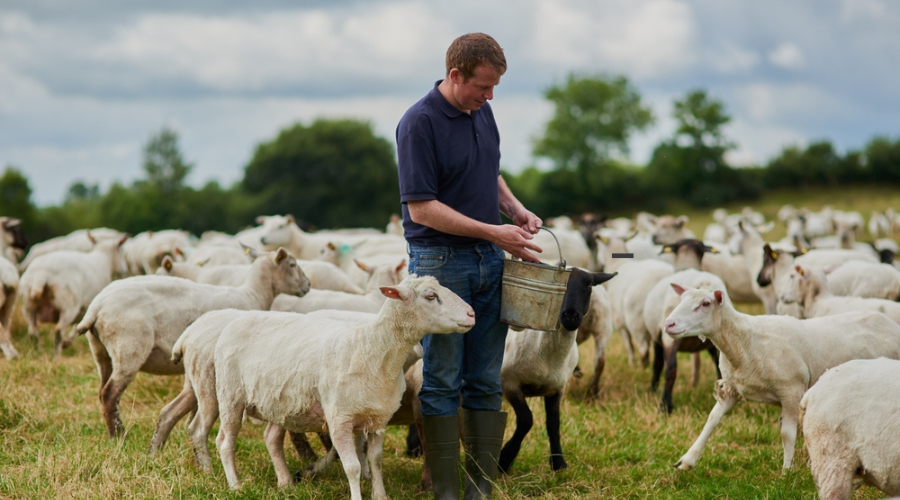Calls for farm support after recent disease outbreaks
20th January 2024
The National Sheep Association (NSA) is reminding the farming community of the importance of looking out for farming friends and family this January, as the start of the year has presented several challenges to the industry.

This includes concerns about bluetongue (BTV), Schmallenberg virus (SBV), and difficult weather conditions, such as severe storms causing flooding on farms in many areas of the UK.
NSA chief executive Phil Stocker said the association recognises that ongoing concerns regarding two impactful and devastating diseases are cause for worry amongst sheep farmers in several parts of the country.
Serious cases
He added: “Bluetongue was grabbing most of the headlines at the end of 2023, being seen as a big risk for the future, but seemingly out of nowhere came SBV, affecting an increasing number of sheep farms across many English regions.
“NSA has heard from technicians involved in taking semen and embryos for export, scanners, early lambers, and the Animal and Plant Health Agency (APHA), that SBV cases are quite serious, with scanners reporting numbers of dead lambs and early lambers saying they are losing between 10-25% of lambs in some cases.”
Positive BTV strain 3 cases continue to be found in and around the control zones in Kent and Norfolk. The total number of positive cases this week now stands at 52 positive animals, four of which are sheep and 48 of which are cattle.
On 15h January, NSA joined an important industry meeting in Norfolk, giving Defra and APHA a chance to talk to farmers and listen to questions and concerns regarding the current situation. Dan Phipps, recently retired NSA chair, co-chaired the meeting, which attracted more than 400 farmers and demonstrated the impact of BTV-3 in the area.
Help available
NSA is aware that a number of sheep farmers within the Temporary Control Zones (TCZ) may currently be dealing with the issue of stock caught up, unable to return home for lambing or further finishing. The Association therefore urges anyone in this position to contact its head office, who will try to help provide contacts who can help with housing, lambing, or feeding sheep that may be stranded.
Mr Stocker said: “We cannot promise anything, but we are very prepared to use our networks and contacts to help where we can, so please do get in touch with the NSA and we will try and help.”
At a time when some farmers already feel under pressure, NSA is urging the farming community to offer support where possible to those currently dealing with distressing cases of SBV or bluetongue amongst their flocks.
NSA communications manager Katie James said: “There has been few times in recent years where the sector has faced such a worrying time concerning animal disease and so it is especially important to check in with those close to you who may be potentially affected. The farming community is also in a fortunate position to be supported so well by a number of fantastic charities who can offer specialised help with both personal issues and those on farm if needed. NSA would encourage anyone struggling at this time to reach out to one of these and not to suffer alone.”
For anyone currently affected by BTV or SBV or struggling with personal challenges of their own, please reach out for help and support. NSA offers professional help through its farming helpline available 7am-11pm every day. Call 03000 111999 or visit their website.
Read more livestock articles here.
